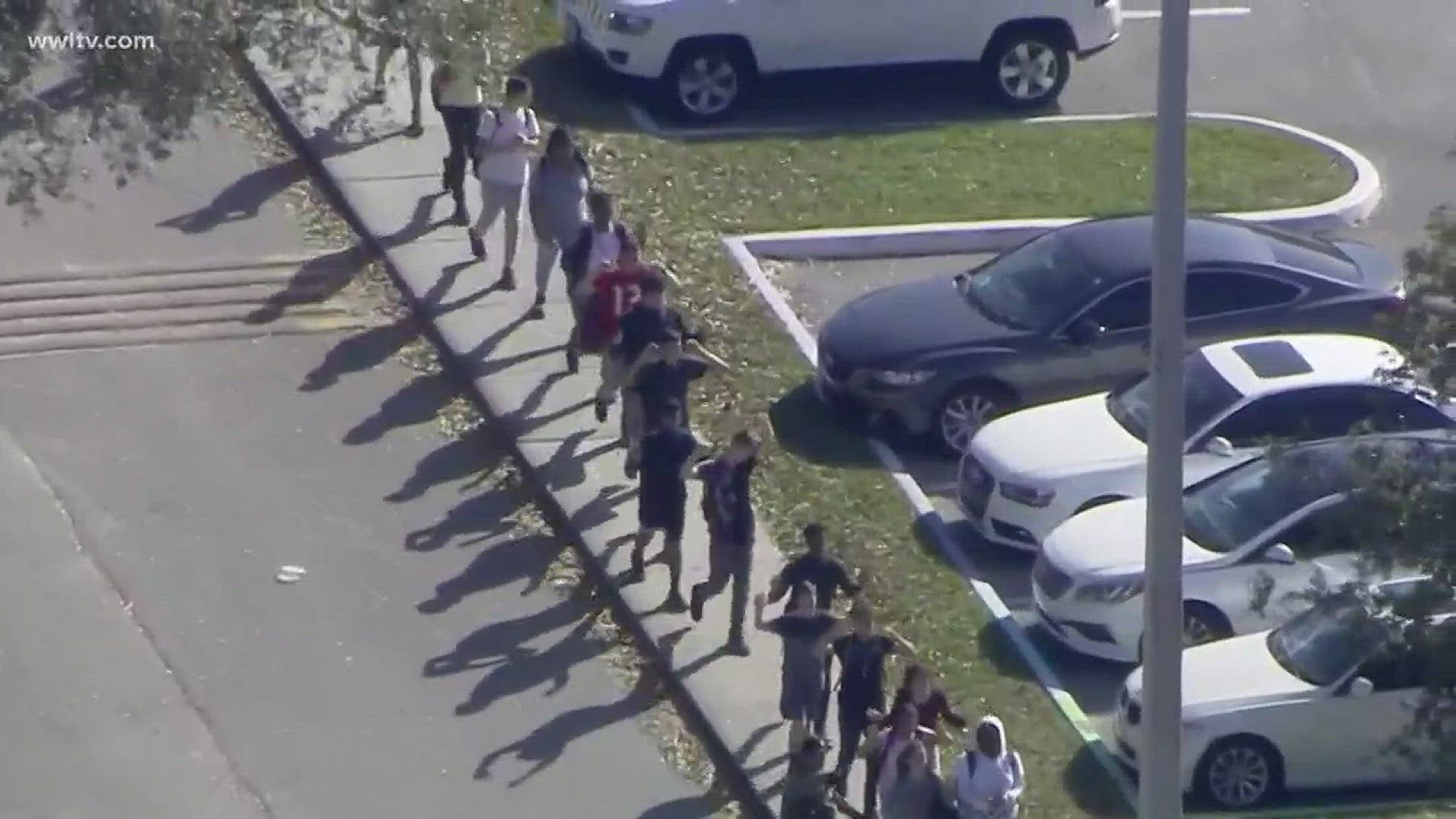NEW ORLEANS - Children all across New Orleans are headed to school Monday, some for the first time since last week's deadly school shooting in Parkland, Florida. As a result, some students may feel anxious.
"What if that was my son at that school?" said parent Robert Preston.
"My heart went out to all the teachers, parents, students, the whole community," said mother Kathryn Feinstone.
The shooting deaths of 17 people inside Marjory Stoneman Douglas High School is something many are trying to understand.
"My son happened to be in South Florida with his dad, so it hit close to home," said mother Meg Gammage.
It's especially hard for kids, which is why parents are taking the time to talk with them about it.
"You sort of, kind of try to avoid it because it's tough to face that reality that this is the world we're living in now," said Preston.
It's a difficult, yet important conversation to have. There are a few things parents should keep in mind when having talking with their children.
"The underlying message that we want to provide our children is that we're here for them," said Dr. Amy Dickson, an LSU Health New Orleans School of Medicine Psychologist.
Dr. Dickson says the conversation should focus on answering what the child wants to know.
"This is one of these things where it's important to sit them down and say I know you may have heard what's going on in the news, lets talk about it," Dickson says. "You know, what are your thoughts about it?"
While informative, Dr. Dickson says it's important to not share too much.
"We don't want to over explain things or give them way too many details that they didn't need to know and increase their anxiety," she said. "They may not know how many children were injured or how severely. We don't want to provide all that. We want to hear what they've heard and correct any misinformation and provide support and meet their needs."
It's a challenging topic to discuss, one that parents may not know all the answers to.
"You can't avoid it," said Preston. "I know the questions are going to be there and I'd prefer the answers come from me."
"I think if they understand that you care, then they'll open up and share with you their feelings," said Gammage.
However, these parents say it's about their kids, doing whatever they can to help put them at ease.
Another piece of advice Dr. Dickson has for parents is to never lie and say it didn't happen. Eventually she says the child will find out that it did and then they'll have a harder time trusting the parent as a source of truth. Also, she asks parents not to minimize the child's anxiety or fears. Meaning, to avoid brushing their feelings off or telling them it's no big deal because she says it'll make that child internalize those fears and worry more.

